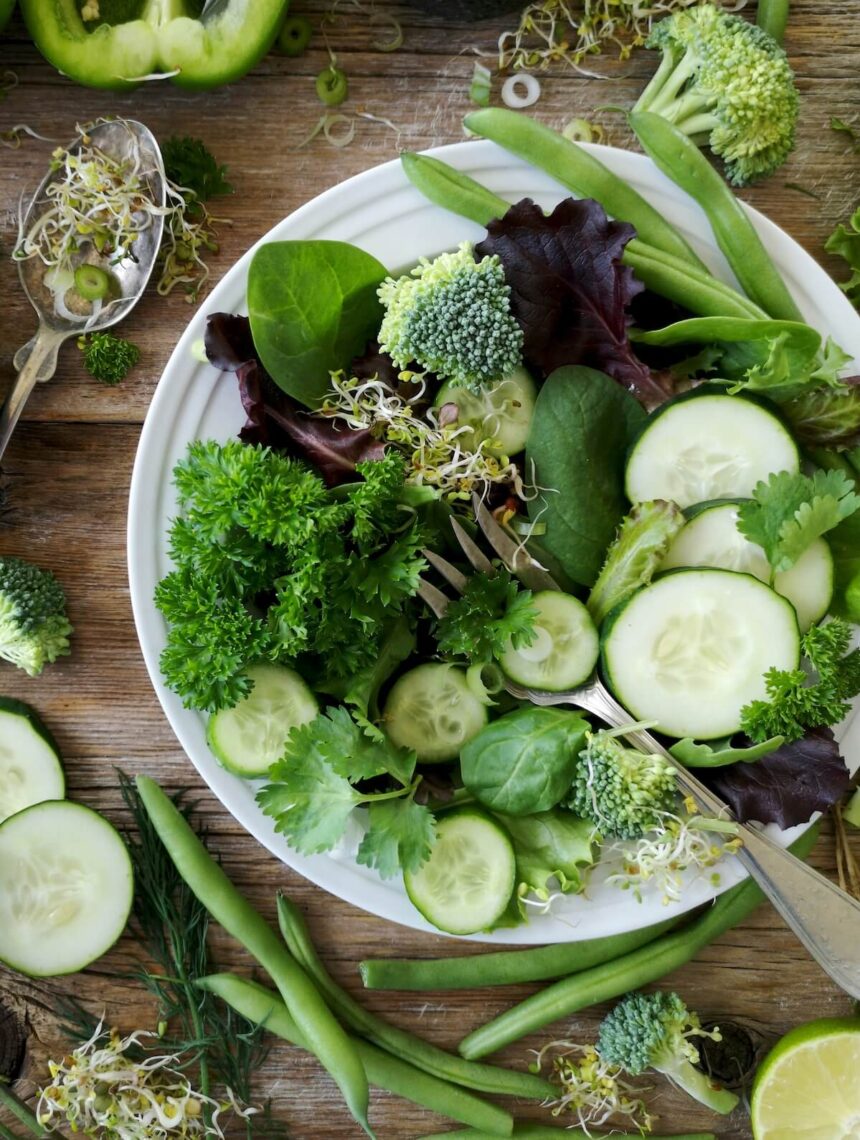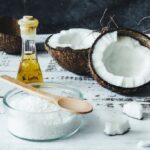Anxiety, depression, and other mental health troubles are difficult to deal with, to put it mildly. Though there’s no one-size-fits-all solution for dealing with anxiety, certain minerals and vitamins may help with anxiety.
“Research suggests diets high in inflammatory foods can contribute to anxiety and depression, and diets high in anti-inflammatory foods, such as the Mediterranean diet, can help prevent anxiety and depression,” says Samantha Shuflin, MS, RDN, LDN.
This means that even a simple dietary change could already improve anxiety symptoms and support your brain’s health.
What Vitamins Help With Anxiety?
Vitamins, minerals, foods that make you feel less anxious, and a healthy, balanced living are all part of diet-based anxiety medication. This may sound too good to be true, but research has proven a clear connection between certain dietary habits and higher levels of anxiety.
It probably doesn’t come as a big surprise, but diets high in fat, added sugar, and refined carbohydrates, combined with an inadequate intake of dietary protein and tryptophan, are usually the main culprits behind higher anxiety levels.
Tryptophan, for example, is required to produce serotonin, which is often referred to as a natural mood-booster. Since tryptophan is an amino acid, it’s found in foods high in protein.
Research has shown, however, lower anxiety symptoms in people who have a varied diet that includes plenty of anti-inflammatory foods.
But when talking about which specific minerals and vitamins help with anxiety, research has found especially significant results in connection to the following five important nutrients.
Magnesium
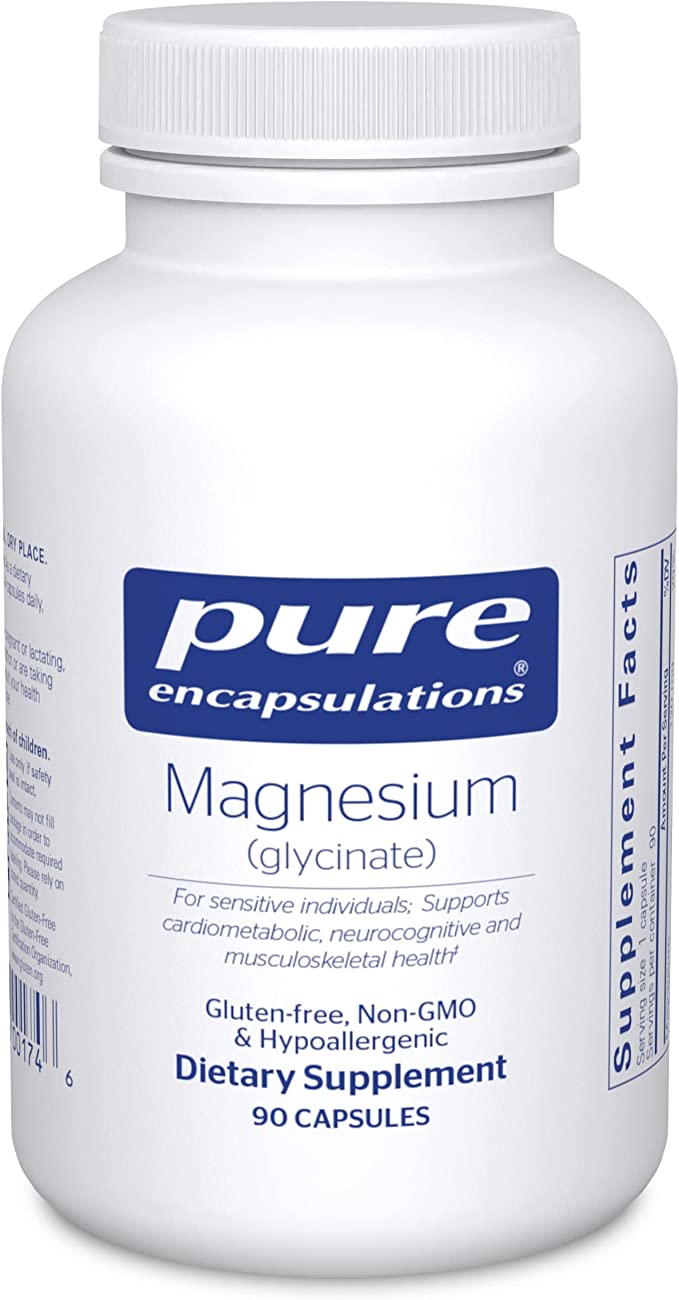
Pure Encapsulations Magnesium (Glycinate)
– Free from common allergens, artificial or unnecessary ingredients, and GMOs
– Supports cardiometabolic, neurocognitive and musculoskeletal health
– Each serving size (1 vegetarian capsule) contains: Magnesium (as magnesium glycinate) 120 mg
Magnesium is known for its calming effects and regulating our neurotransmitters, which send messages throughout the brain and body. As a result, it can help our nervous system to reduce stress and anxiety.
While research is still inconclusive, some findings suggest that magnesium supplements may help people who are otherwise healthy but experience more stress.
Most people are not at risk of developing magnesium deficiency, but studies have found that even the current magnesium intake may not be enough to reduce the risks related to chronic stress that many of us experience nowadays.
Since deficiency is unlikely and magnesium intake can easily be covered with a varied diet, most people may not need magnesium supplements.
However, there may be certain at-risk individuals who may want to consider supplementing magnesium. “If you have uncontrolled diabetes, have absorption issues in your intestines, or are dependent on alcohol, a supplement may be needed,” suggests Jonathan Valdez.
Zinc
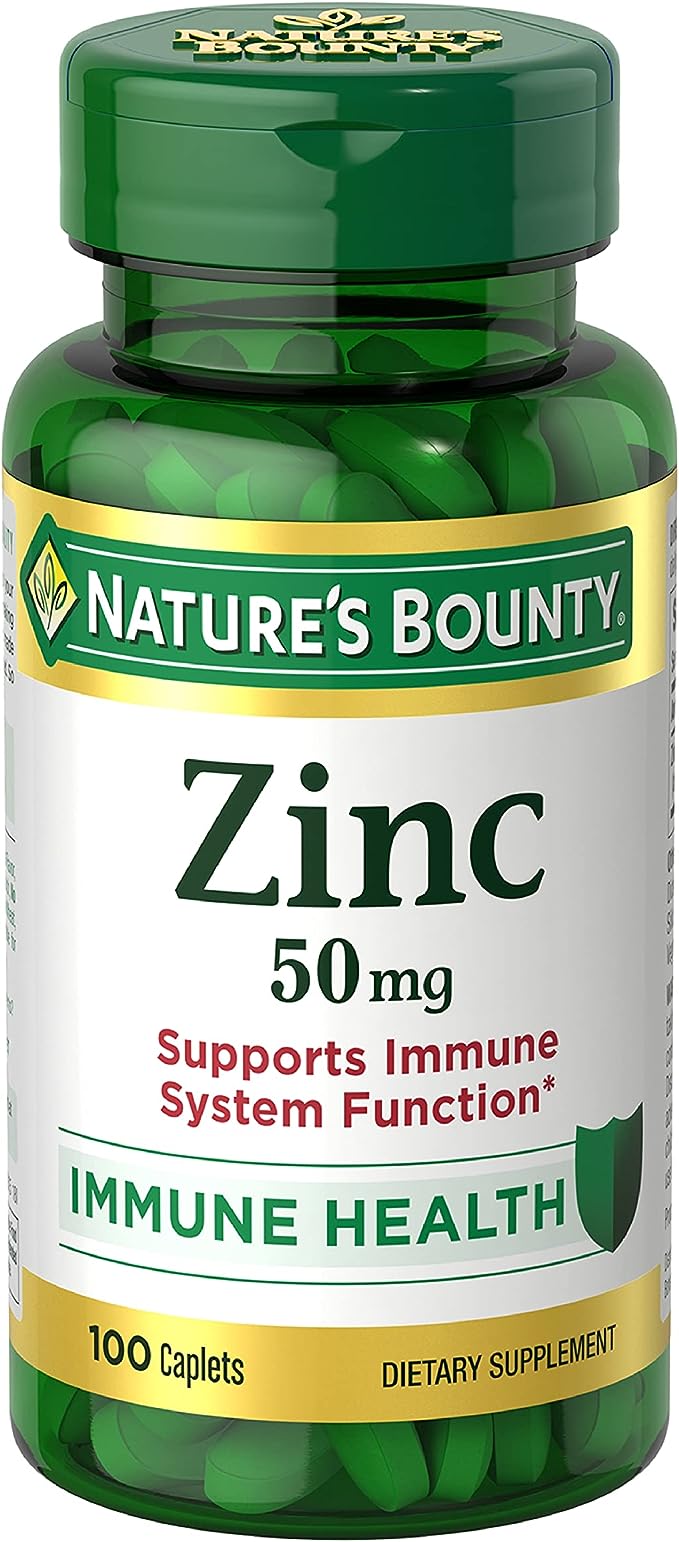
Nature’s Bounty Zinc
– Non-GMO and sugar- and gluten-free
– Nature’s Bounty Zinc supplements are a product of 50 years of dedication to quality, consistency, and scientific research
– Nature’s Bounty is the number 1 brand for zinc supplements
Another mineral that’s required in small amounts daily is zinc. Similar to other nutrients that help with anxiety mostly due to their anti-inflammatory effects, zinc’s power comes from its anti-oxidative properties.
According to one study, zinc’s anti-inflammatory role helps the pathways related to immune and inflammatory responses. What’s more, low zinc consumption has been connected to depression, so it may be useful to consider adding more zinc-rich foods to your daily diet.
Some of the best sources of zinc include oysters, beef, legumes, and nuts.
B Vitamins
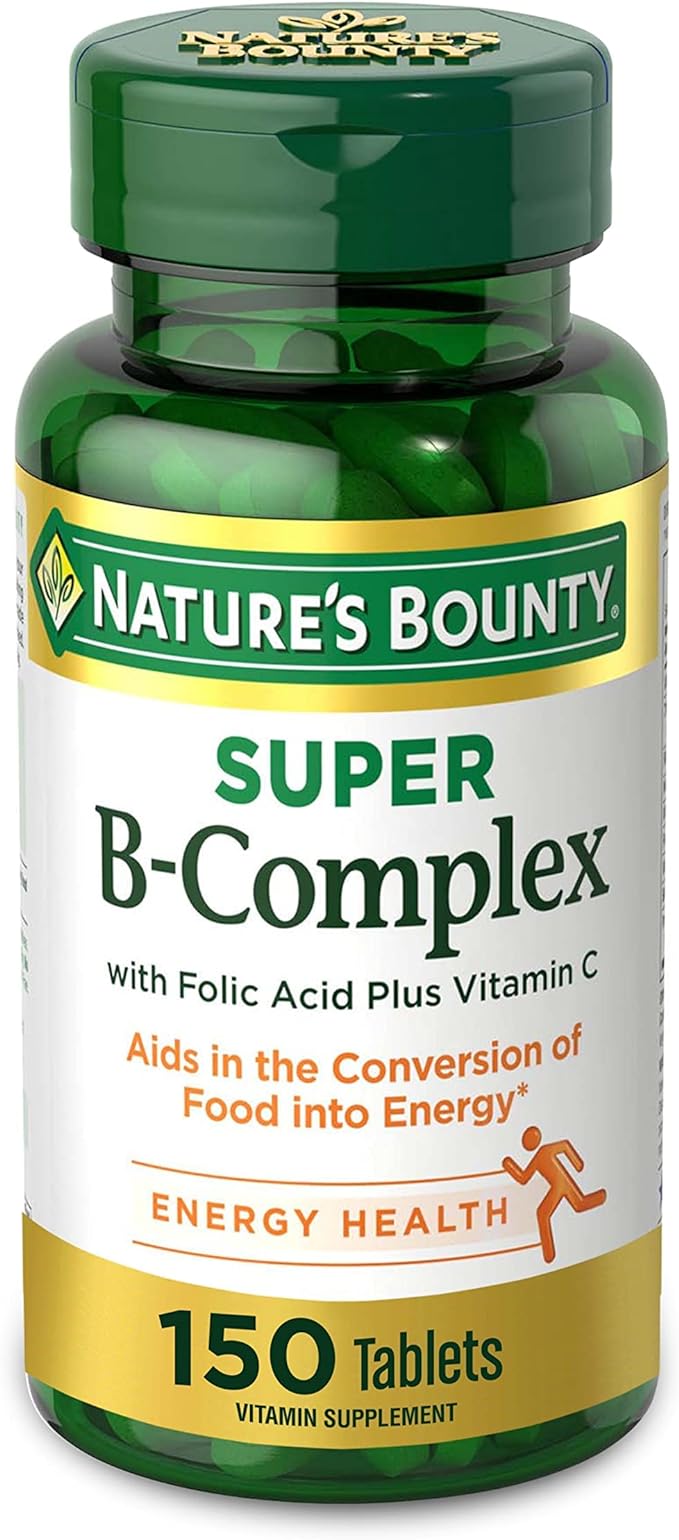
Nature’s Bounty Super B Complex with Vitamin C & Folic Acid
– Vegetarian-friendly non-GMO gluten-free sugar-free and contains no artificial colors sweeteners or flavors
– Helps the body convert food into the fuel which is used to maintain energy
B-complex vitamins are essential for the nervous system. They help in the production of neurotransmitters like serotonin and dopamine, which are crucial for managing stress and anxiety.
Vitamin B12 may be especially crucial for those struggling with anxiety. Vitamin B12 has functions associated with cell division on the DNA level and with neurological structure. Research shows 60% of people with anxiety had levels of Vitamin B12 less than 250 pg/nL.
It is recommended to consume at least 2.4 micrograms of Vitamin B12 with meat, poultry, seafood, and animal byproducts such as milk, yogurt, and cheese, which have the highest concentration of vitamin B12.
Vitamin D
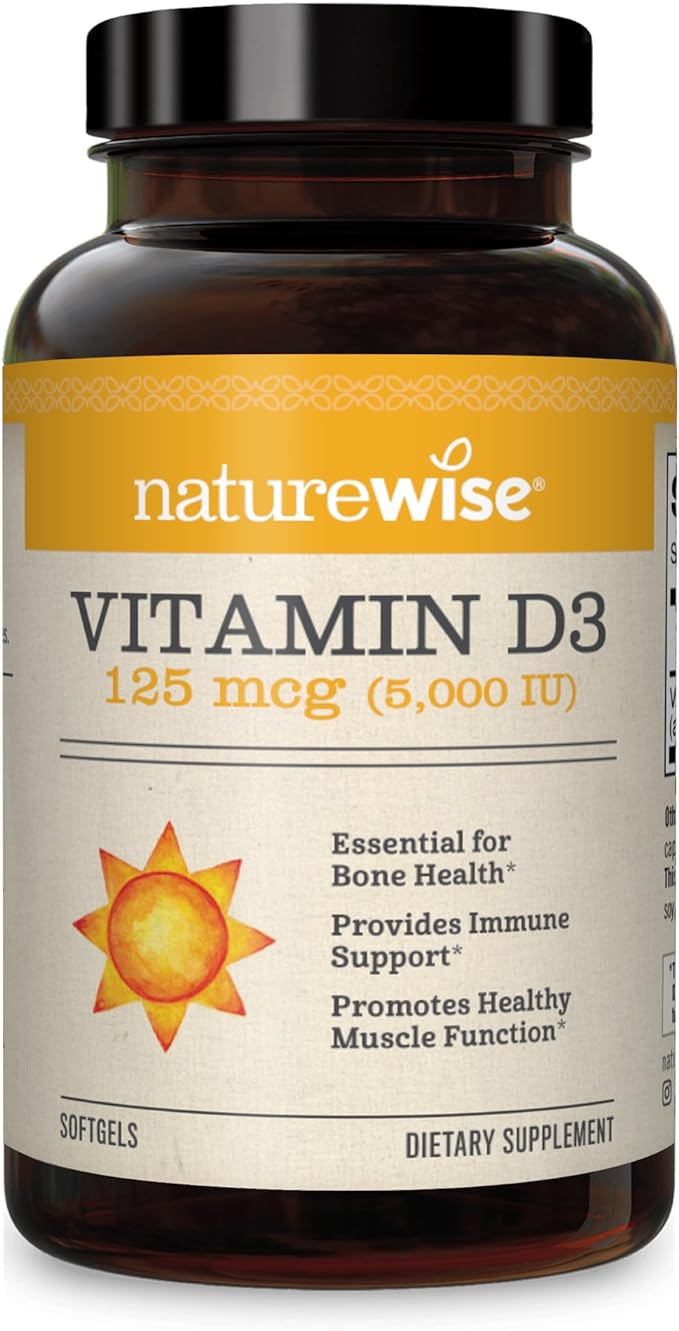
NatureWise Vitamin D3 5000iu
– Non-GMO, and gluten free with no artificial additives, fillers or binders
– Manufactured in USA-based facilities that comply to the strictest cGMP standards
– In cold-pressed olive oil
Vitamin D has immune and brain-protecting properties. Some research shows that Vitamin D has a relationship with anxiety, and people would benefit from having adequate levels in their blood.
It is recommended to take 600 IUs daily, but you may need more if you’re deficient. Make sure to check your Vitamin D levels before opting for a supplement.
Omega-3 Fatty Acids
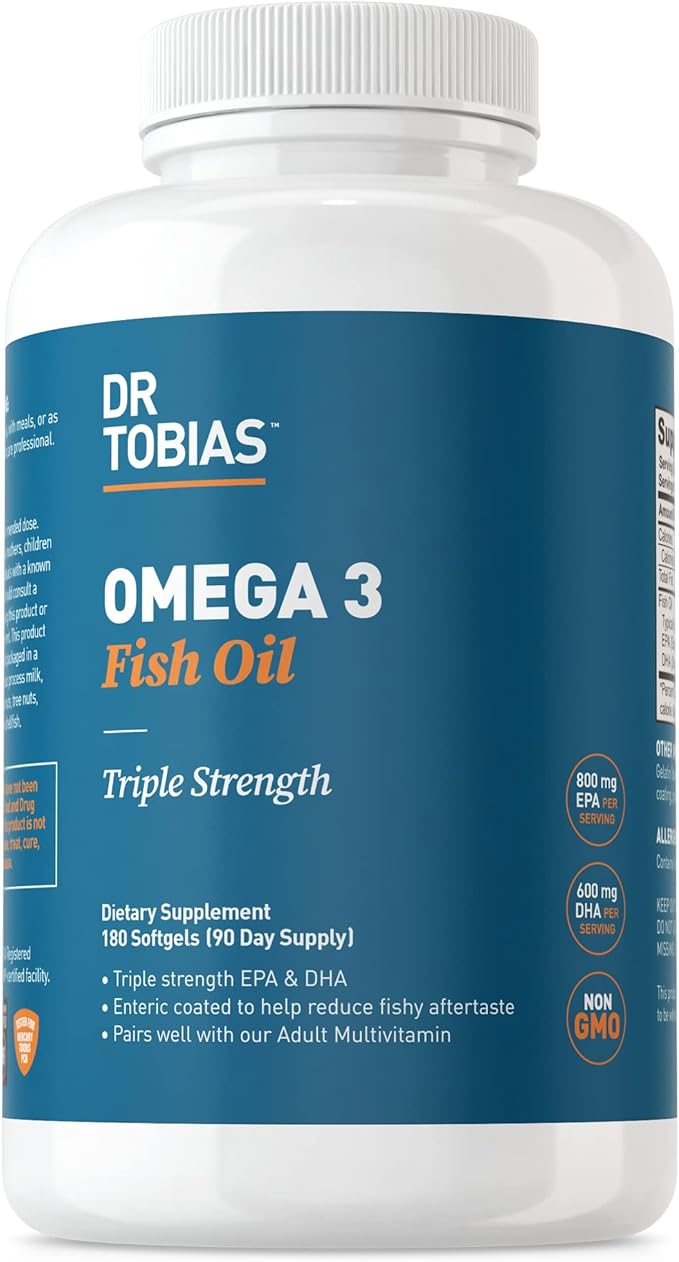
Dr. Tobias Omega-3 Fish Oil
– Each serving contains 2,000 mg of fish oil delivering 1,400 mg of omega 3s
– Potent ratio of 800 mg EPA & 600 mg DHA
– Specialized purification process removes heavy metals, PCBs, and other toxins
Omega-3 fatty acids are part of the brain’s health. Research shows that anxiety is associated with low levels of Omega-3 fatty acids. Consuming omega-3 fatty acid supplements no more than 2 grams per day or eating two servings (3 ounces each) of fatty fish per week can help you keep your levels adequate.
“After eating these things every day for two months as part of our food program at OxygenArk, people said their worry levels dropped by 3.5 points and felt calmer in their daily life,” uncovers George Yang, the founder of Yanre Fitness and OxygenArk.
Just a little bit of fatty fish and nuts every week can improve your mood significantly.
Best Foods to Combat Anxiety
Now that you know which minerals and vitamins help with anxiety, you may wonder which foods are the best to include in your diet?
Here are some of the best foods to combat anxiety:
- Peanut butter – Polyphenols in peanut butter help decrease anxiety. Polyphenols are poorly absorbed into the body, so they go to the colon, where the gut consumes polyphenols, producing short-chain fatty acids. Short-chain fatty acids have various influences on disease, including anxiety. Research shows that higher peanut butter intake has decreased anxiety scores in healthy adults.
- Probiotics – Aim for fermented foods like kimchi, source, tsukemono (Japanese pickled vegetables), and yogurt. Although the research is young, preliminary studies show that probiotics helped with scores in anxiety.
- Fruits and vegetables – Most people need to consume more fruits and vegetables. About 1 in 10 people are eating enough fruits and vegetables. “Consume at least five servings of fruits and vegetables, each serving weighing about 80 grams. To make it easier, half of your plate should be fruits and vegetables at each meal,” recommends Jonathan Valdez, Registered Dietitian Nutritionist and the owner of Genki Nutrition.
- Nuts and seeds – Flaxseeds and chia seeds are great sources of magnesium, same goes for walnuts and almonds. Nuts and seeds also support your health with healthy fats.
- Fatty fish – Salmon, trout, and sardines are high in omega-3 fatty acids, helping your brain health. Consuming fatty fish daily or at least several times per week is especially recommended.
There are also supplements beyond vitamins and minerals that have been shown to improve anxiety symptoms, as highlighted by Shuflin:
- Ginkgo biloba supplement – A clinical study showed taking 480 mg daily for four weeks modestly reduced anxiety symptoms in those with a generalized anxiety disorder.
- Lemon balm supplement – Lemon balm has been used for relieving anxiety for centuries due to its calming and sedation effect. Effective doses used in research to treat stress and anxiety range from 300-600mg per day.
- Ashwagandha supplement – Ashwagandha is an adaptogen used in ancient Ayurvedic medicine. Adaptogens are herbs and mushrooms considered to aid the body in physiological and psychological stress. Studies show Ashwagandha may help modestly improve stress and anxiety.
Even regular matcha consumption may help with anxiety. “Matcha is rich in L-Theanine, an amino acid that promotes relaxation without drowsiness, making it an excellent beverage for anxiety relief,” explains Lydia Sims from How Matcha.
Diet and Lifestyle Tips for Anxiety Relief
Food itself is just one piece of the puzzle when it comes to relieving anxiety symptoms. While an anti-inflammatory diet and consuming plenty of fresh whole foods are two of the key factors, there are several other habits to follow.
These simple lifestyle changes may help to relieve your anxiety:
- Regular exercise: Physical activity is key in managing anxiety. It helps release endorphins, improves mood, and reduces stress.
- Mindful eating: Paying attention to the experience of eating can improve your relationship with food and reduce anxiety. Sit down during your meals and avoid rushing.
- Adequate sleep: Good sleep hygiene is crucial for mental health. Aim for 7-8 hours every night for the best mental health support.
- Less fast food: As mentioned above, fat-rich foods promote inflammation in the body. Fast food is detrimental to your mental health, so try to cook most of your meals at home and avoid fast food as much as possible.
Dealing with anxiety is complicated, but these simple lifestyle changes can only improve your mood – or even ease your anxiety symptoms.


